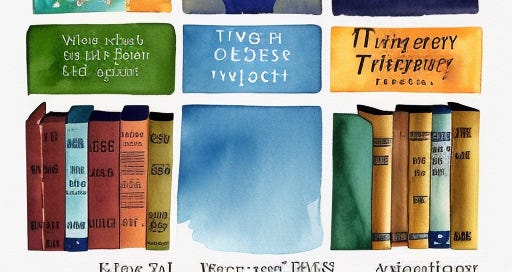2022 has been quite the year! Many of us were transfixed by the massive ups and downs of crypto and the explosion of AI apps and ChatGPT.
In the midst of it all, while the media and social media were awash either with hype or deep cynicism, fo…
Keep reading with a 7-day free trial
Subscribe to How to Win in the Age of AI to keep reading this post and get 7 days of free access to the full post archives.




